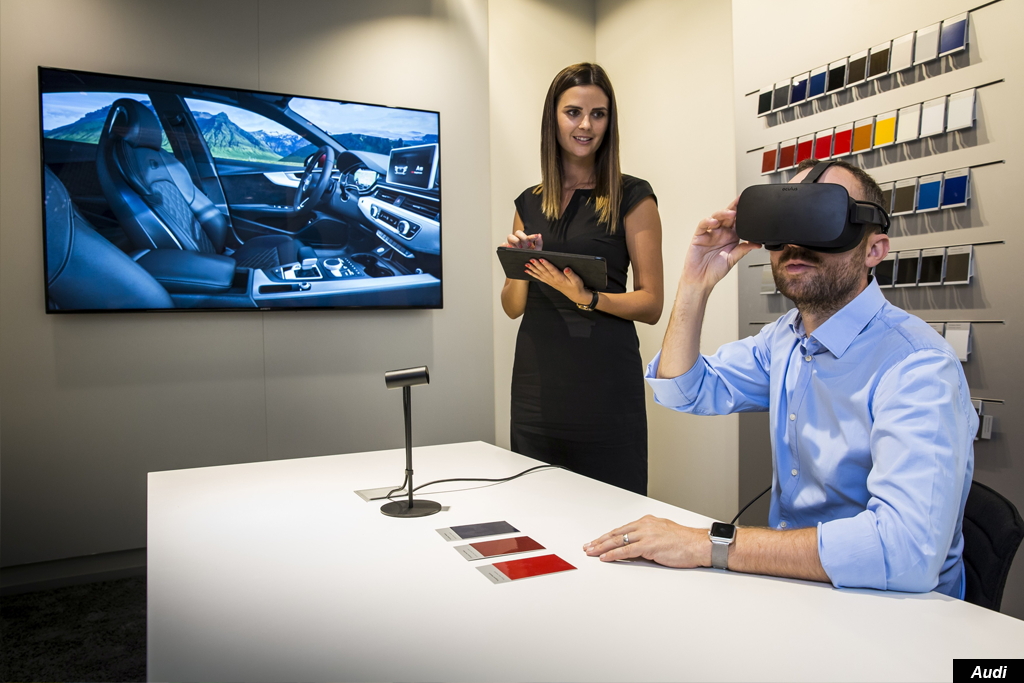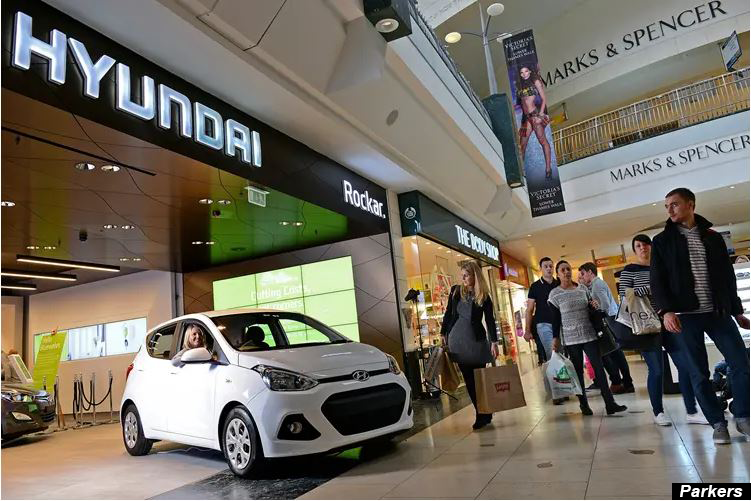With the ‘Digital Dealership’ transforming the car-buying process and subscription services catching the interest of car retailers, 2019 looks set to be a year of disruptive innovation for the automotive industry. Here’s our take on what to expect in 2019.
A year of connectivity
The ‘Internet of Things’ will be a very common saying throughout the course of 2019. Consumers want connectivity at all times. Driving falls into this remit and you can expect the automotive industry to be largely centred around expanding the driver experience to feed the digital demands of potential customers.
Car owners of 2019 want the instant reach of Alexa, music and social media from their dashboard, just as they expect in any other walk of life. Car manufacturers have recognised this consumer demand and look set to answer these desires in the design of their latest models.
Hyundai have replicated Apple’s Touch ID system, developing smart fingerprint technology that will allow drivers to unlock and start a vehicle without using keys. In terms of voice recognition, BMW, Ford, and Toyota have all declared their plans to integrate Alexa into their models in 2019. You can expect to see more developments on this front throughout the year.
Car manufacturers continue to struggle
With Ford announcing cuts to over 400 jobs at Bridgend plant, Jaguar Land Rover announcing its biggest quarterly loss of £3.4bn and Honda set to lose ‘hundreds’ of temporary jobs at their Swindon plant, car manufacturers seemed destined to deal with another 12 months of headache.
Ford
Ford have begun the first phase of a redundancy push that will see over around 400 jobs cuts at its Bridgend plant while many thousands of jobs will be released at its most struggling European operations.
Jaguar Land Rover
Elsewhere, Jaguar Land Rover have reported that they are cutting 4,500 jobs, with the large majority coming from their 40,000 UK employees. With refinements being made to their management structure, the large majority of the job losses will come from their office roles. The cuts come on top of last year’s 1,500 job losses. The automotive company is currently battling trading difficulties, with a drop in demand for diesel cars and a sales slowdown in China. The manufacturer made a £3.4bn pre-tax loss in the final three months of 2018 as sales dropped.
Tesla
Tesla have announced that they are cutting over 3,000 jobs (equivalent to 7% of its workforce). The company plan to align their production strategy and slowly move away from the niche-car market, with plans to produce an electric vehicle that more people can afford.
In a letter addressed to staff, CEO Elon Musk said: “Looking ahead at our mission of accelerating the advent of sustainable transport and energy, which is important for all life on Earth, we face an extremely difficult challenge: making our cars, batteries and solar products cost-competitive with fossil fuels,” “While we have made great progress, our products are still too expensive for most people.”

Growth of the digital dealership
With all leading automotive retailers implementing the use of augmented reality, the notorious car salesman figure is slowly fading away from the customer journey of the modern day car buyer. Traditional dealerships have had to revamp their business practices in order to entice today’s web savvy buyers, who can scour the market for the best deals, at the touch of a button. Today’s showroom is now a place customers can be educated on product information, through various compelling methods of delivery, such as video walls, touch tables and motion sensors. From the showroom or at home, AR gives consumers the chance to:
- Test drive
- Change car exterior colours and alloy options
- Find out about vehicle interior and dashboard features
- Review engine and transmission options
- Experience autonomous emergency breaking

AR product visualisation has been described as the ‘try before you buy’ of the digital era, a way for car dealerships to showcase the best features of their car models to their buyers, tailored to the way prospective clients want it.
Pop-up shops signalling the end of the traditional forecourt?
With the rising popularity of pop-up stores, the future of the traditional car showroom has certainly come into question in the last few years. For retailers, pop-up shops certainly present a car retailing opportunity, transitioning from rent heavy, out of town forecourts, which are heavily reliant on car shoppers visiting, and moving into busy shopping centres and cities, taking business to the consumers.
The high pressure salesman is replaced with a customer service adviser, allowing regular shoppers to experience new cars up close and personal, and arrange test drives if necessary. This pop-up approach has been deployed by Mercedes-Benz, who opened a pop-up store at Westfield shopping centre in London, and Volvo, who displayed their new XC60 in Manchester’s Arndale Centre. Mercedes-Benz announced that over one million people have visited its pop-up shops since the first was introduced in October 2015.

Further emergence of car subscription services
The methods of car ownership have continually grown over the last decade, giving customers the chance to obtain a vehicle affordable to their lifestyle. While the most popular questions have been whether to lease, buy or finance, car subscription certainly seems like a viable option for those looking for a vehicle on a pay-as-you-go scheme.
The rapid rise and popularity of subscription-based licensing has almost been unprecedented, with on-demand services like Spotify and Netflix becoming an integral part of a consumers day to day life. Now a billion-pound industry, there’s few signs of this trend slowing down.
The automotive industry has begun to follow this route, with companies offering contract free and flexible car subscription services. Drivers are able to choose from a range of cars, which all include MOT, road tax, servicing, maintenance and breakdown cover. The main concerns around the monthly ownership models is the price points, with some subscriptions costing over £800 a month.
It will definitely be speculated as to whether the increased popularity of this buying model will bring more competitive prices to the market?

